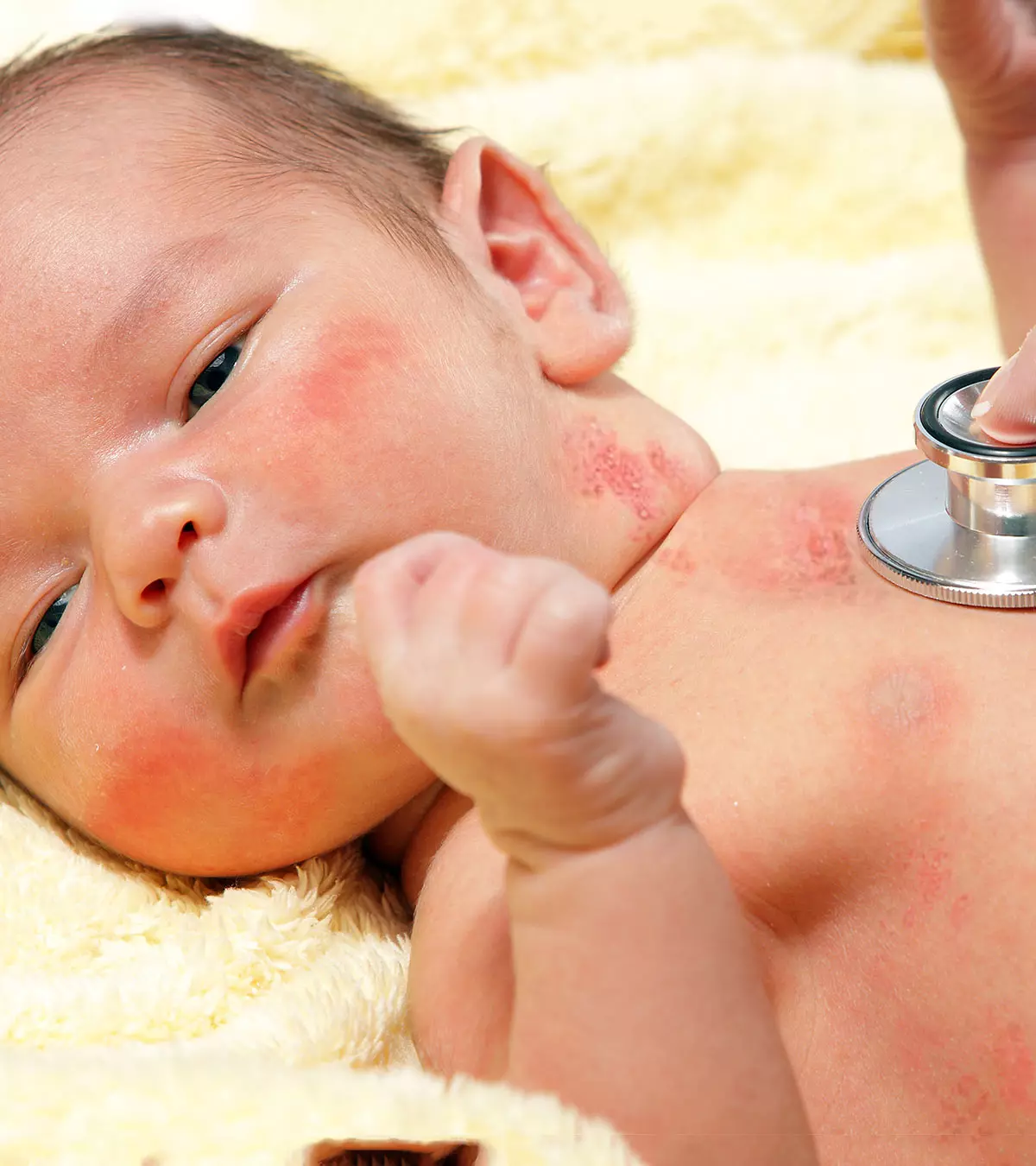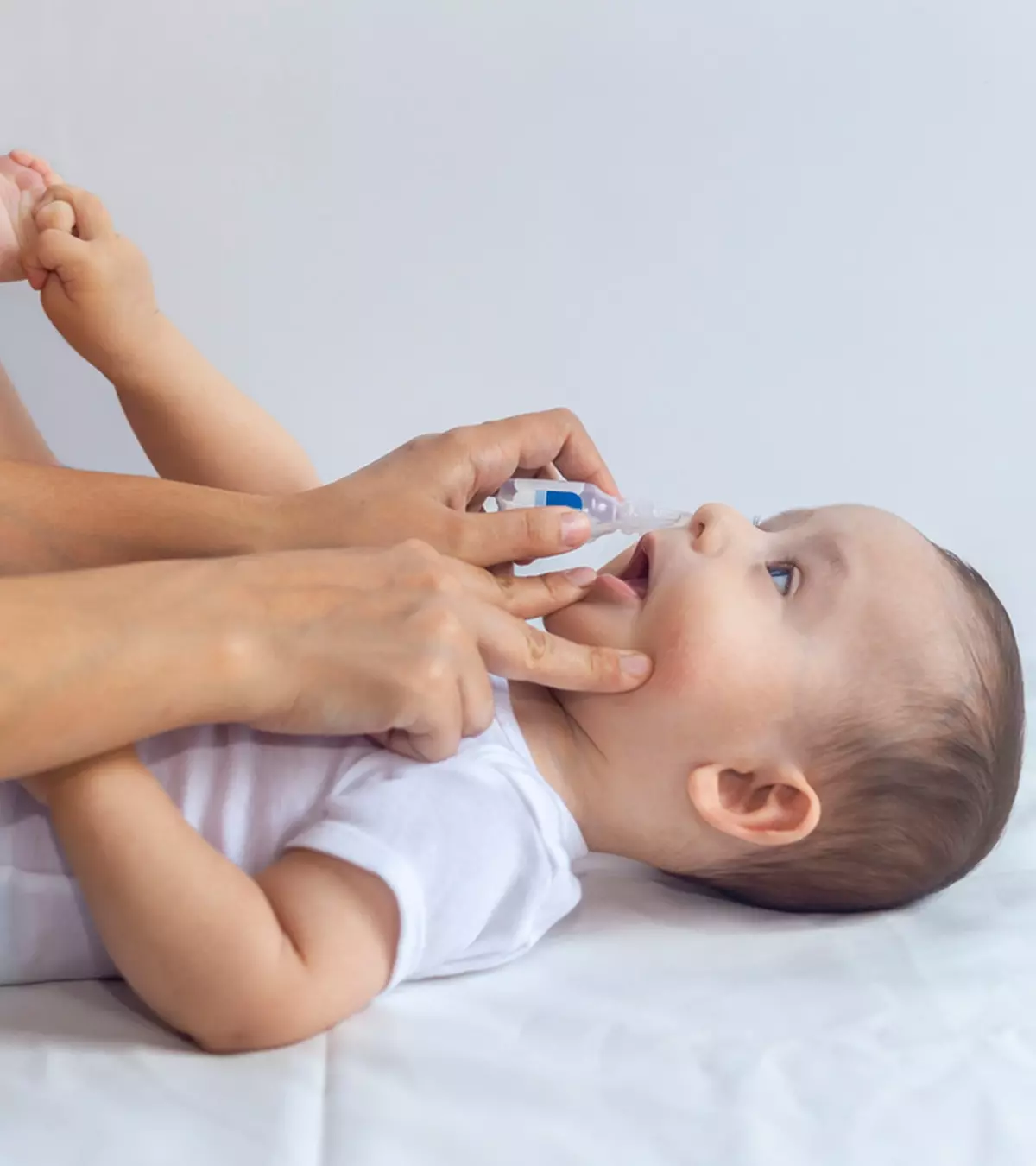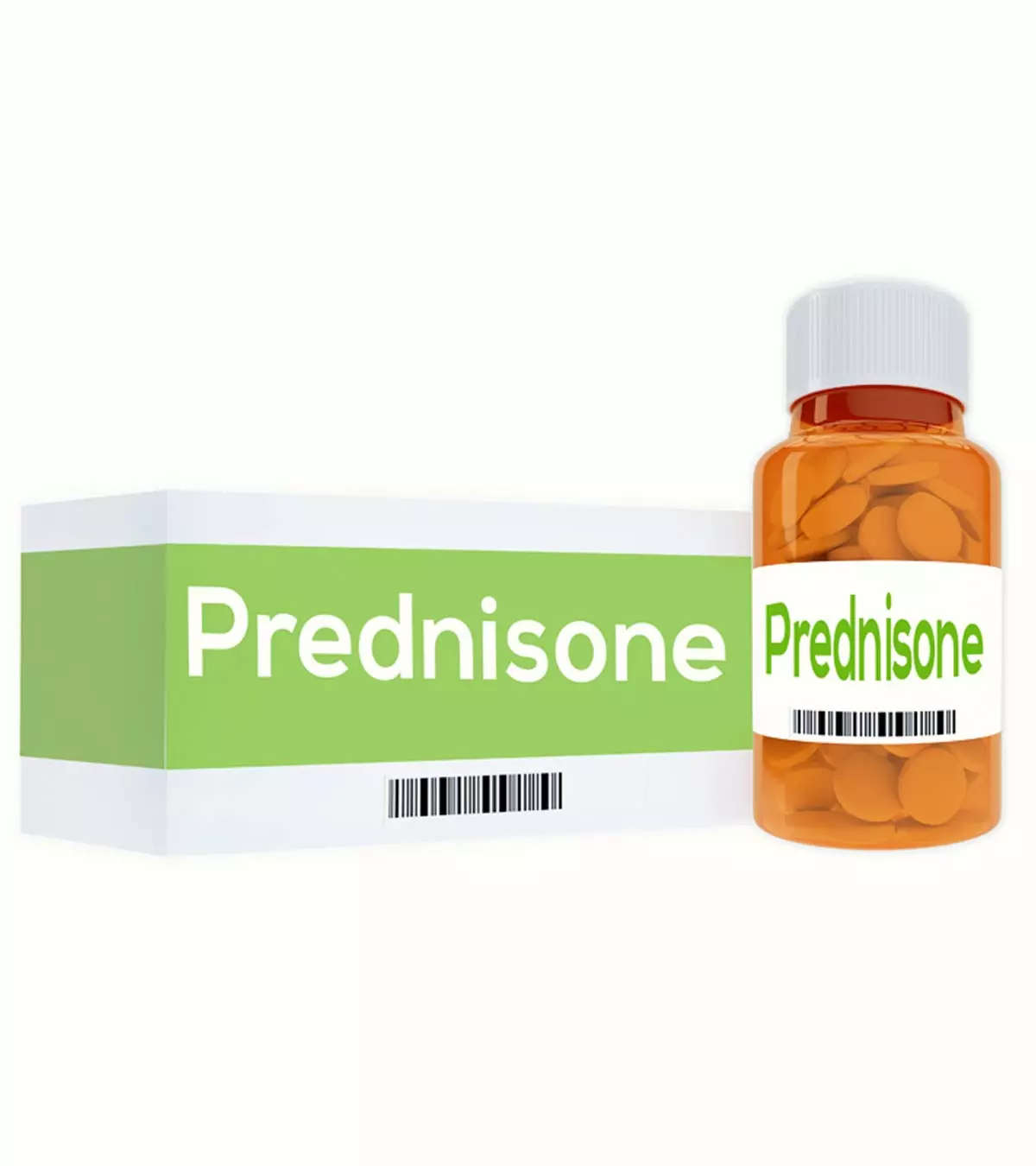
Image: Shutterstock
The initial three months of pregnancy are the most sensitive for the baby and the mother. This post on the first trimester of pregnancy precautions will give you more information in this context. The first trimester starts from the first day of conception and lasts till the 12th week. During this period, the common symptoms that you will experience are tiredness, weight gain, morning sickness, mood swings, etc. This is also when the vital organs of the fetus develop and grow rapidly. To maintain proper development of the fetus, you need to follow a healthy lifestyle and diet. Read on to know more about the precautions you should take during the first trimester.

Key Pointers
- Stay hydrated by drinking 8 to 12 glasses of water every day.
- Be mindful of fish and seafood intake, avoiding raw or uncooked fish.
- Attend regular prenatal appointments with a qualified gynecologist or obstetrician and openly discuss any health concerns.
- Obtain a healthy food plan from a dietitian or nutritionist to maintain a healthy weight and BMI.
- Engage in light to moderate exercise, like taking walks or practicing prenatal yoga.
Essential Precautions For A Healthy First Trimester
Follow these precautions in the first trimester to avoid several pregnancy complications.
1. Stay hydrated

You will need more fluids during pregnancy as the blood volume increases to support the oxygen and nutrient requirements of the fetus. The sudden changes in the body will increase the demand for fluid intake. You should consider having lots of water, fresh juices, and smoothies to remain hydrated at this time (1).
 Quick fact
Quick fact2. Take prenatal vitamins
Take prenatal vitamins as suggested by your doctor. The early pregnancy period is crucial for both the mother and the fetus. It is essential that you take supplements for folic acid, which is essential to prevent birth defects (2), and iron that prevents pregnancy anemia.
3. Quit smoking

If you are a habitual smoker, now is the time to quit. Smoking increases the risk of several complications such as low immunity, low-birth weight, premature labor, miscarriage, and ectopic pregnancy (3). Dr. Kimberly Langdon, a gynecologist from Central Ohio, says, “The first trimester is a period where vital organs are developing. Alcohol and smoking are the two leading causes of birth defects and developmental abnormalities, any amount or level of exposure can have a significant impact on the fetus, particularly during the first three to eight weeks of pregnancy.” There is also a risk of sudden infant death syndrome (SIDS)iAn occurrence when a healthy baby dies without any apparent reason commonly while asleep with second-hand smoking. Therefore, say no to tobacco and avoid passive smoking for a healthy pregnancy (4).
4. Quit alcohol and cut down on caffeine
Like tobacco, alcohol and caffeine also put the mother and the fetus at risk. In a CDC Morbidity and Mortality Weekly Report (2025), researchers discovered that approximately 14% of pregnant women reported current alcohol use, while 5% of pregnant women reported engaging in binge drinking within the past month. Alcohol consumption can lead to learning disabilities and negatively impact the cognitive functioning of the fetus.
Too much caffeine is associated with premature labor and congenital disabilitiesiA structural or functional defect that is present during the birth that can be detected through ultrasound scans (3). Limit colas, sodas, chocolates, green and black tea as they contain excess caffeine. According to experts, women should limit their caffeine intake during pregnancy to less than 200 milligrams per day, which is about one 11oz cup of coffee.
 Did you know?
Did you know?5. Watch your food
Make healthy food choices and follow a balanced diet. Keeping your dietary habits in check also helps you manage your weight effectively (5).
- Include more nuts and seeds to increase your intake of omega-3s, which are required for the development of the brain, eyes, and nerves of your baby.
- Consume egg yolk, milk, tuna, salmon, and fish liver oil that are rich in vitamin D. Also, get more sunlight exposure.
- Increase your intake of calcium-rich foods during pregnancy by including different foods, such as broccoli, spinach, and tofu.
- Include all food groups; talk to your doctor about calorie intake and plan your diet accordingly.
- Avoid processed foods as they contain traces of sodium nitrates that affect fetal development
- Avoid preservatives and foods with synthetic colors
- Wash fruits and vegetables to remove the pesticide residue or stick to organic sources.
6. Consume folate-rich foods
Folate (folic acid), or vitamin B, is an essential nutrient for a pregnant woman and her baby. It lowers the risk of anemia in mothers and helps to avoid birth abnormalities in fetuses. Pregnant women are recommended to consume 400 – 800 micrograms of folic acid per day, which can easily be achieved through dietary sources. Some common folate-rich foods you can include in your pregnancy diet are spinach, okra, asparagus, brussels sprouts, beets, avocado, orange juice, lentils, peanuts, sunflower seeds, etc. (6).
7. Consume fish and seafood with caution
Although fish and seafood are healthy sources of proteins and fats, some varieties contain high mercury levels that are dangerous for the fetus. Mercury is associated with brain damage and developmental delays in the baby (7). Therefore, you should consume fish with caution and also take your doctor’s advice before including it in your diet (8).
- Limit tuna, avoid king mackerel, swordfish, and tilefish.
- Avoid fish caught from unknown sources
- Avoid dishes like sushi that have raw fish
- Avoid fish and seafood that are not tested by the local food safety department
8. Do not miss prenatal OB/GYN visits

Schedule a prenatal appointment soon after your pregnancy is confirmed. It is important to see a qualified gynecologist or obstetrician. Your doctor might ask about your medical history to understand your health condition better and prescribe medications accordingly. Communicate with your doctor honestly and regularly and consult them whenever you experience any pain or discomfort (8).
9. Manage your weight
Maintain a healthy lifestyle and have a healthy BMI before trying to get pregnant. Being obese increases risks during pregnancy. Also, gaining too much weight suddenly, especially during the first trimester and commencing weeks, is harmful. It can also lead to gestational diabetes. If required, check with a dietitian for determining the optimal nutrition during this time so you can benefit from a healthy diet plan (9).
 Quick fact
Quick fact10. Exercise

Indulging in mild and moderate-intensity exercises in first trimester can help you stay active and keep your metabolism high. A walk in the park will be good for your health and is refreshing. You should avoid heavy and strenuous activities such as back-bends, stretches, and advanced abdominal moves.
Also, avoid exercises that need you to lie on the back, put pressure on the abdomen and those that lead to overheating and dehydration. Consult your doctor before planning to take up yoga, meditation or breathing exercises, or enroll in prenatal workout classes (9).
11. Manage blood glucose levels
Some pregnant women are at increased risk of developing gestational diabetes. Obese women or those with a family history of diabetes are at a higher risk. Although manageable, the condition may lead to maternal and fetal complications, such as birth abnormalities and preeclampsia. While it is not totally preventable, a low-carbohydrate diet, regular exercise, and avoiding rapid weight gain during pregnancy could help maintain optimum blood sugar levels during pregnancy (11).
12. Do not take herbs and medication without consulting a doctor
Certain herbal supplements and medications are harmful during pregnancy. Never continue old prescriptions or pills you think are good. They may be harmful and lead to issues such as miscarriage, premature labor, and painful contractions. Always consult your doctor before taking any medication to keep yourself and the baby safe (12).
13. Avoid hot tubs and sauna baths
Staying in high temperatures for prolonged periods will increase the risk of neural tube defects (NTDs)iCongenital disabilities of the brain, spine, or spinal cord caused when the neural tube doesn’t close completely in the fetus (13). Hot tubs and saunas cause you to remain in temperatures higher than the basal body temperature. So avoid them and use heat compresses wrapped in a cloth to relieve joint pains and backaches.
14. Avoid strong smells

Some pregnant women might experience a heightened sense of smell, especially in the first trimester. This could, therefore, aggravate symptoms such as morning sickness and nausea (14). Stay away from scents or smells that could trigger nausea or vomiting.
A mother, Nurul Ali recalls having her nausea triggered by different strong smells during the first trimester. In her blog, she shares, “My sense of smell got really sensitive. I could smell anything from a distance. I could smell it when my parents got home from the market with fresh meat. I couldn’t stand the smell when my mom was cooking. Oh, I couldn’t stand seafood! These would all trigger vomiting! I can’t even stand my own perfume or Hafiz’s. Or my mom’s. The highest record I hit was vomiting about 8 times a day. I vomited till I cried (i).”
 Quick tip
Quick tip15. Limit exposure to pets
If you have pets at home, limit contact with them as they may carry harmful parasites such as Toxoplasma gondiiiA parasite that causes an infectious disease called Toxoplasmosis , which is detrimental to the baby’s development. It can affect the brain causing reduced growth and eye defects in the fetus. Animal danderiDandruff-like flaky skin cells shed by some animals is also known to cause allergic reactions (15).
16. Get tested for STDs (sexually transmitted diseases)
Pregnant women need to get screened for STDs and HIV in the early pregnancy stage. These infections will have a significant impact on the pregnancy, your health and your baby’s health too. Therefore, you should use contraceptives to avoid the risk of disease (16). If the screening tests are positive, early and prompt treatment may cure the infection and also protect the fetus.
Is Air Travel Safe In The First Trimester?
Yes, it is usually safe to fly during the first trimester with nil or minimum high-risk factors, but you should be aware that the risk of miscarriage is highest during the first trimester. Also, flying for more than four hours raises the risk of thrombosis (blood clots). Taking the right precautions such as proper hydration, wearing comfortable clothing, calf exercises, and walking around the airplane (if possible) helps make the journey safer (17) (18)
Frequently Asked Questions
1. What are the signs of unhealthy pregnancy?
Vaginal bleeding, seizures or convulsions, severe headaches accompanied by impaired vision, fever and extreme weakness preventing you from getting out of bed, severe abdominal pain, rapid or labored breathing are some signs that may indicate an unhealthy pregnancy include (19).
2. What increases the risk of miscarriage in the first trimester?
Chromosome abnormalities, problems in the development of the placenta, maternal weight, smoking, alcohol consumption, and caffeine overconsumption are some of the factors which can increase the miscarriage risk in the first trimester (20).
3. Should I rest in the first trimester?
Expecting women are recommended to take optimum rest during pregnancy, especially in the first trimester. It is because the body during this time undergoes several changes that may make the mother feel tired (21). Chronic fatigue can affect your and your baby’s health. Dr. Langdon recommends, “Pregnant women who have exacerbated signs and symptoms in the first trimester, such as morning sickness, dizziness, or any type of vaginal bleeding, should be on bed rest.”
4. Can I climb stairs in the first trimester?
Yes, climbing stairs and engaging in lightweight physical activities such as walking are safe during the first trimester (22). However, as your bump grows, your center of gravity shifts, which warrants you to be careful while climbing stairs.
The first three months of pregnancy are crucial for fetal development and pregnancy sustenance. Thus, an expecting mother should pay special attention to her lifestyle and its effect on herself and her unborn baby. Eating a well-balanced diet, staying hydrated, exercising regularly, taking prenatal vitamins, and attending prenatal care checkups can help ensure the mother and baby stay healthy. Genetic testing for problems like Down syndrome and Patau syndrome can also be done after 10 weeks of being pregnant. On the other hand, avoiding stress, quitting smoking and alcohol, avoiding non-prescribed herbal supplements or medications, and abstaining from hot tubs and sauna baths could help prevent early pregnancy complications.
Infographic: Precautions To Take During The First Trimester Of Pregnancy
The initial three months are a crucial phase of pregnancy, and this is the time when most fetal developments begin. Therefore, staying fit and safe is paramount to facilitating a healthy pregnancy and baby. This infographic highlights valuable tips to follow during your first trimester.
Some thing wrong with infographic shortcode. please verify shortcode syntax
Illustration: First Three Months Of Pregnancy: 14 Crucial Precautions To Take

Image: Dall·E/MomJunction Design Team
Personal Experience: Source
MomJunction articles include first-hand experiences to provide you with better insights through real-life narratives. Here are the sources of personal accounts referenced in this article.
i. My pregnancy journey: Morning sickness; https://dellaire.wordpress.com/2016/04/18/my-pregnancy-journey-morning-sickness/References
1. Obstetrics/Prenatal Patients; Yale Health
2. Folic acid; U.S. Department of Health and Human Services (2018)
3. Babak Shakeri et al.; First trimester growth: is it influenced by cigarette smoking, and other substances; Australas J Ultrasound Med (2013)
4. Health Effects of Cigarettes: Reproductive Health; Centers for Disease Control and Prevention
5. K. Nelson et al.; Eating Well for a Healthy Pregnancy; Colorado State University
6. Where to Get Folic Acid Naturally During Pregnancy; American Pregnancy Association
7. Mercury And Pregnancy; March of Dimes
8. Should I avoid seafood while pregnant; Michigan State University
9. When Should You Share The News About Your Pregnancy; The University of Utah
10. Joe Giessler; What is normal weight gain during pregnancy; The Ohio State University (2018)
11. About Gestational Diabetes, Centers for Disease Control and Prevention
12. Exercise During Pregnancy; Rush University Medical Center
13. Lisha J. John & Nisha Shantakumari; Herbal Medicines Use During Pregnancy: A Review from the Middle East; Oman Med J (2015)
14. Milunsky A et al.; Maternal heat exposure and neural tube defects; JAMA (1992)
15. Neda Ebrahimi et al.; Optimal management of nausea and vomiting of pregnancy; Int J Womens Health (2010)
16. Cheryl Barbanel; Occupational Health Program for Personnel with Laboratory Animal Contact at the Charles River Campus and Boston University Medical Campus
17. International Travel While Pregnant or Breastfeeding; University of Rochester
18. Is it safe to fly while pregnant; NHS (2018)
19. Danger Signs In Pregnancy; NCBI
20. Miscarriage; NHS
21. Do’s and don’ts during the first trimester of pregnancy; Sanford Health
22. How active should I be in pregnancy?; Tommy’s
23. How much water should I drink during pregnancy?; ACOG
24. Limiting your caffeine intake in pregnancy; Tommy’s
25. Weight Gain During Pregnancy; CDC
Community Experiences
Join the conversation and become a part of our nurturing community! Share your stories, experiences, and insights to connect with fellow parents.
Read full bio of Dr. Richa Hatila Singh
- Dr. Kimberly Langdon is a gynecologist with 19 years of experience wherein she delivered more than 2,000 babies. She is currently working as vice-president, product development and research at Physician Integrative Laboratories in the US. She did her doctor of medicine from the Ohio State University.
 Dr. Kimberly Langdon is a gynecologist with 19 years of experience wherein she delivered more than 2,000 babies. She is currently working as vice-president, product development and research at Physician Integrative Laboratories in the US. She did her doctor of medicine from the Ohio State University.
Dr. Kimberly Langdon is a gynecologist with 19 years of experience wherein she delivered more than 2,000 babies. She is currently working as vice-president, product development and research at Physician Integrative Laboratories in the US. She did her doctor of medicine from the Ohio State University.
Read full bio of Rebecca Malachi
Read full bio of Swati Patwal
Read full bio of Aneesha Amonz
















